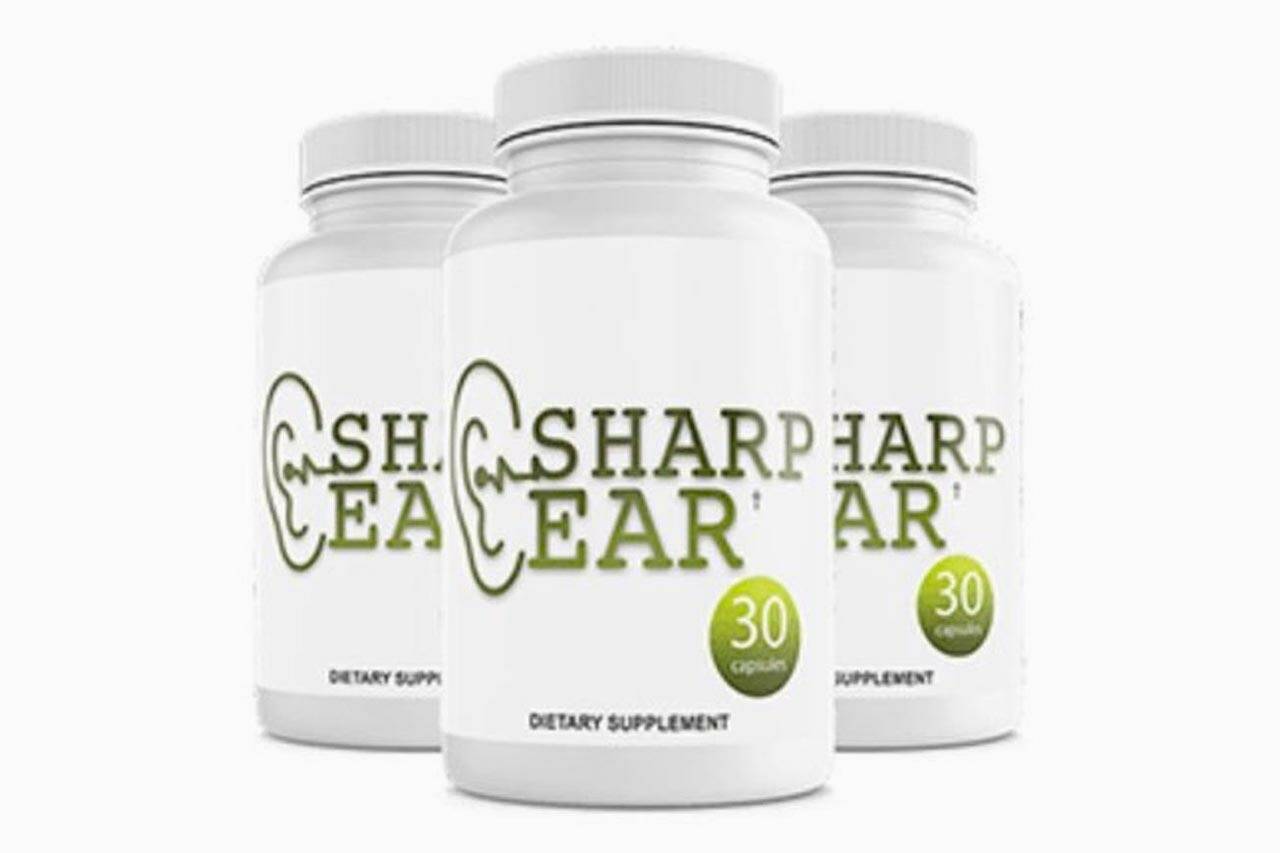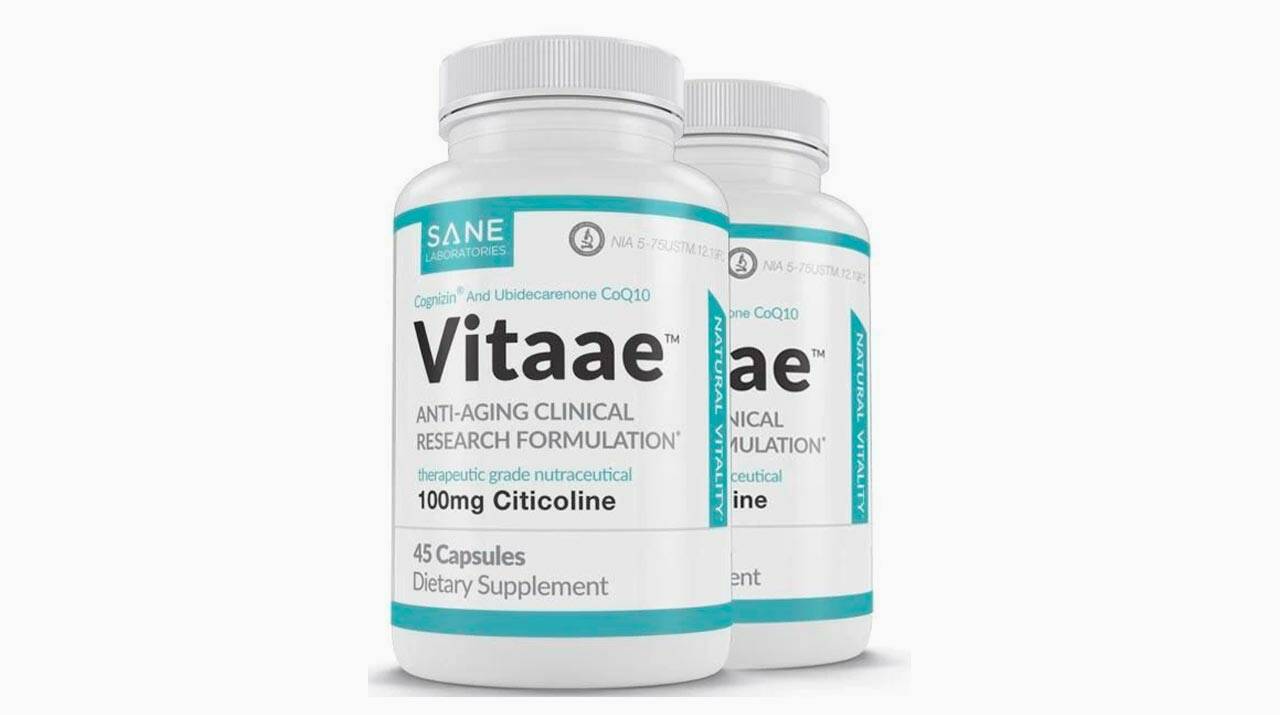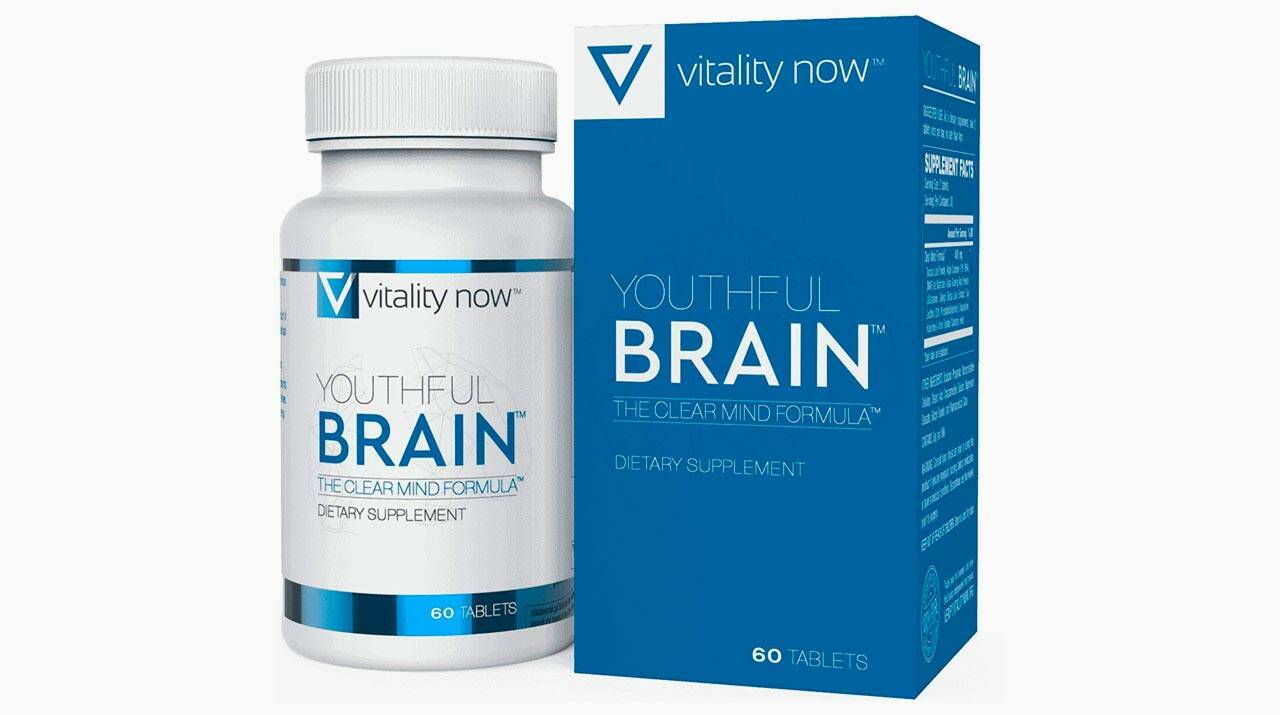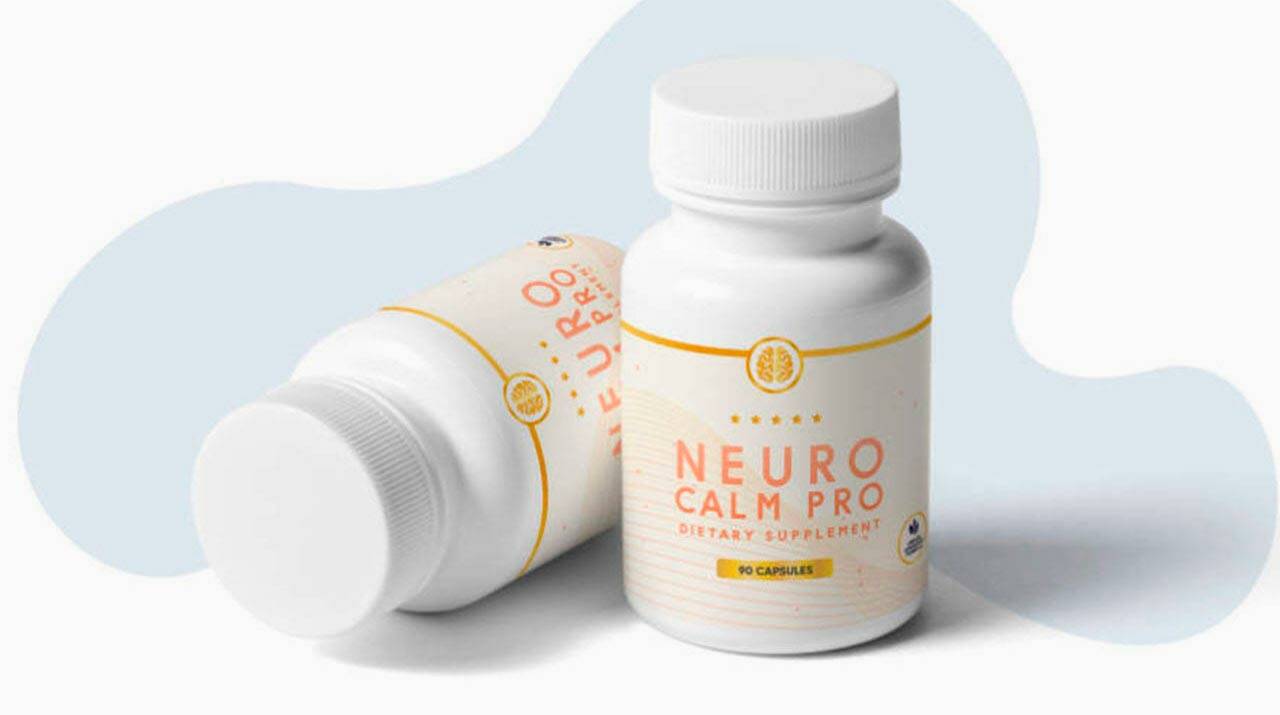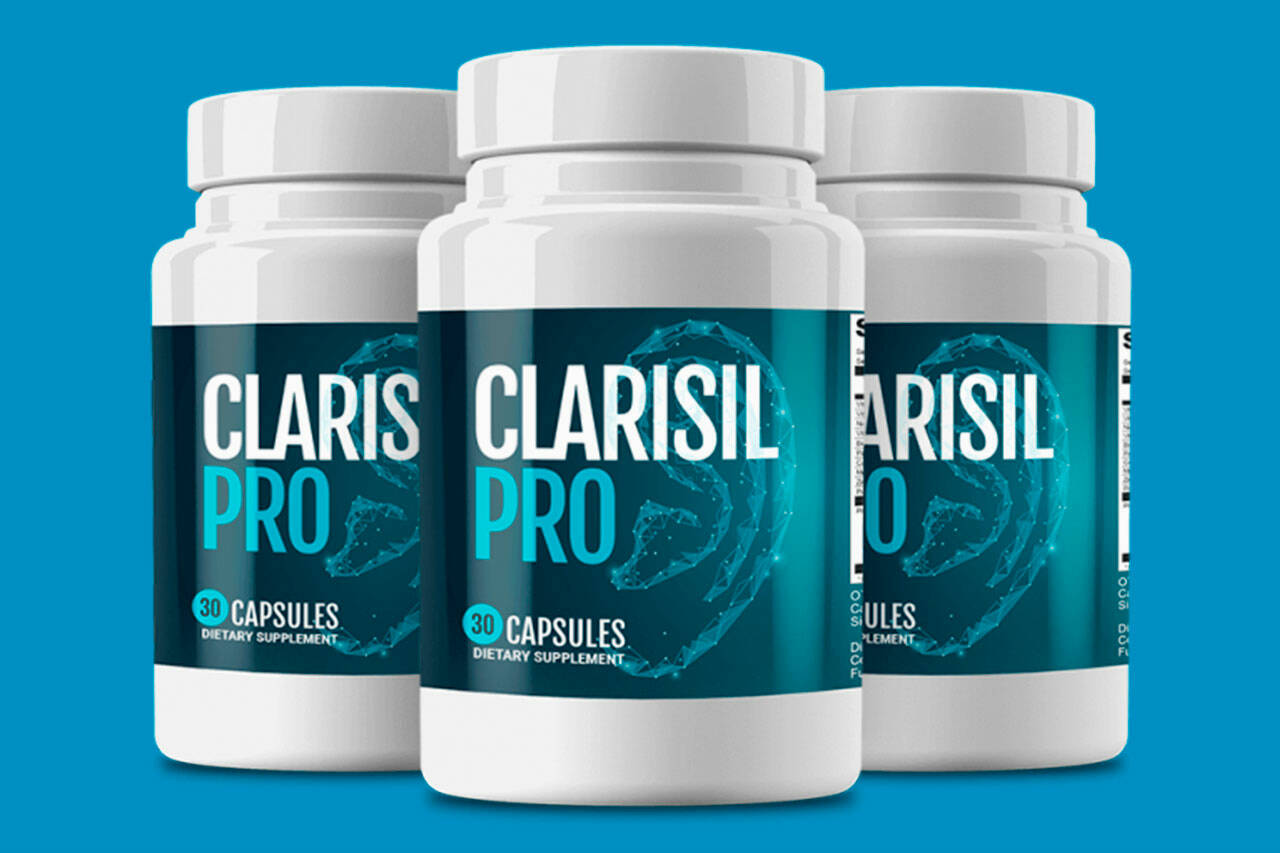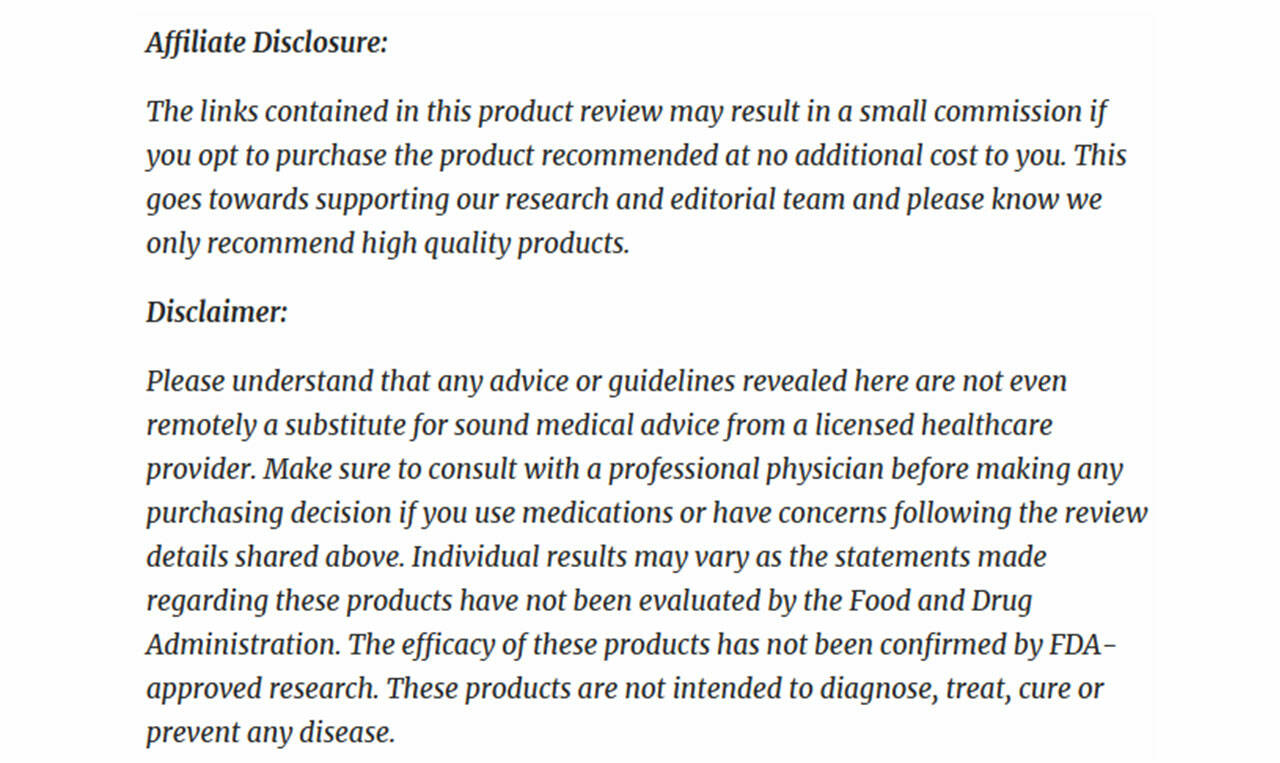It’s annoying when you can’t hear what’s going on around you. Hearing loss affects over a quarter of the population over the age of 65. Hearing loss, on the other hand, affects persons of all ages. Noise-induced hearing loss affects about 40 million persons between the ages of 25 and 65. By the age of 50, around 2% of persons in the United States will have some form of hearing loss. However, by the time they reach 75, they have a 50% probability of having hearing damage deemed an impairment. According to Johns Hopkins University researchers, hearing aids can be life-changing for hearing loss, affecting more than 2/3 of American adults aged 70 and over.
If you have an older relative, you may have observed that their hearing abilities have deteriorated. Maybe they crank up the volume on the TV, or you have to talk to them a bit louder than usual. They may ask you to restate what you’re saying if you’re on the phone with them. Alternatively, they may have claimed to have ringing in their ears. We assembled a Forbes Health Hearing Aid committee of three audiologists to determine the finest hearing aids in various areas. We also gave each hearing aid model a score based on its average price and the qualities that most hearing aid customers look for.
Hearing aids are getting more sophisticated, competent, and unobtrusive as technology advances. According to research, restoring a person’s hearing can enhance their overall health. As per the World Health Organization, approximately 2.5 billion individuals will have hearing loss by 2050, with over 1 billion young adults at risk of lifelong hearing loss due to poor listening habits. According to research, hearing loss is widespread in people aged 48 and over, and it can influence a person’s social, emotional, and physical well-being.
Hearing aids, fortunately, can assist. Natural substances are used in hearing supplements to treat ear inflammation, hearing loss, tinnitus, deafness, and other hearing problems. Hearing aid shopping can be difficult, especially if you have never done it before. Some include a lot of choices and settings, while others are more straightforward. Based on frequent concerns, we compiled a list of possibilities. It’s important to note that before deciding on the proper hearing aids for you, you should speak with your doctor or a healthcare expert and get a hearing test. They may send you to a specialist and assist you in determining whether or not you require hearing aids.
We’ll go over why we get hearing loss as we get older and some of the best supplements out there that can help you improve your ear health and avoid a hearing loss to some extent—hearing aids all promise to improve your hearing. However, the majority of them are ineffective.
The Best Hearing Supplements in 2022
Hearing loss supplements enhance hearing and ear health by combining vitamins, minerals, and other natural substances. To find the finest hearing loss supplements for 2022, we contacted manufacturers, spoke with consumers, examined lab records, and combed through research.
Here are our rankings:
Volumil
Volumil is a brain blockage-targeting hearing supplement. Volumil, which costs $69 a bottle, uses natural medicines to address the brain bottleneck producing your hearing problems. Volumil is an entirely natural dietary aid that aids in the restoration of clear hearing. It comprises about 30 components that work together to guarantee optimal rain activity and auditory nerve function. John Miller developed the recipe based on Amish customs.
It’s critical to expel as many poisons as practicable from your body, as per the Amish morning practices. You can only be healthy from all angles if you are in this state, and it’s Volumil’s goal is to do this. Volumil’s purpose is to target amounts of a specific protein in the body to indirectly alleviate hearing issues, poor nerve health, and failing cells. While it may be tempting to buy in bulk, it is usually best to test a one-month supply first to confirm no adverse side effects. To understand more about Volumil and take full benefit of this newly-released hearing loss solution, visit the link below.
A 60-day money-back guarantee is included with Volumil. Reviews on the official website claim that Volumil has helped individuals quit wearing hearing aids, repair significant physical injury to their ears, and make their hearing seem 20 years younger, among other surprise advantages. Two pills each day is the suggested dosage. It’s best to take the tablets with a glass of water before noon. One container of the supplement has 30 capsules, which is enough for a month’s supply. If your health care practitioner advises you to take two pills every day, it might last up to 15 days. Take one tablet per serving in the morning and evening if this is the case.
SharpEar
SharpEar is a natural nutritional supplement that can help you enhance your hearing health by using all-natural components. After years of scientific research and study, SharpEar is manufactured in an Approved and GMP-certified facility. SharpEar is an entirely natural, safe, and effective product with no dangerous stimulants or impurities. Instead, you use your brain to hear. SharpEar, created by a 65-year-old man who had significant hearing problems verging on deafness, claims to clean up hearing impairments in weeks by strengthening the ear-brain link, resulting in crystal clear hearing.
SharpEar guarantees that all of our ear and hearing issues are entirely treated. As we become older, our bodies fail to shield our ears and veins from pollutants and poisons. As a consequence, certain potentially harmful compounds may enter your brain and ear, wreaking havoc on your hearing. Bacopa monnieri extract, vinpocetine, St. John’s wort, and Ginkgo biloba leaves are among the eight plant extracts and natural components found in each SharpEar capsule. Many nootropics contain these substances. They’re meant to help with both cognition and hearing in SharpEar. SharpEar is made in an FDA-registered and GMP-certified facility after years of scientific research and investigation. SharpEar is a natural, safe, and effective solution that contains no harmful stimulants or contaminants. SharpEar has no ingredients that are addictive. As a result, SharpEar can be used for as long as desired without a doctor’s prescription.
SANE Vitaae
The Vitaae product page’s first review is straightforward. Chris P. wonders if readers have ever entered a place and forgotten why they were there. If they have, he believes Vitaae is a good fit for them. After all, the supplement may have helped Chris with his memory problems. MD, Dr. Matthew Olesiak, has created SANE Vitaae, a brain health supplement. To combat “leaky brain syndrome,” the supplement contains CoQ10, L-carnitine, and other proven antioxidant components.
If you have leaky brain syndrome, you may have mental fogginess, memory loss, sadness, low energy, anxiety, a slowed metabolism, difficulty concentrating, and mood swings are all possible symptoms. SANE Laboratories, a reputable company, make Vitaae. Jonathan Bailor, the company’s CEO, is a best-selling author, an award-winning film producer, and the owner of 26 patents in the health and wellness field. Doctors from Harvard Medical School, John Hopkins, and the Cleveland Clinic have all praised his work.
SANE Vitaae promises to assist hearing in numerous ways while also boosting general brain health by providing your brain with the nutrients it requires. SANE Vitaae is also one of the few supplements on our list created by a physician and backed by other physicians. SANE Vitaae may be the correct choice if you wish to promote ear health and cognition simultaneously. As per the official website, it may even aid weight loss.
Youthful Brain
Youthful Brain is a cognition and hearing supplement from Vitality Now that uses natural substances to address hearing in various ways. Youthful Brain, developed by former NASA doctor Sam Walters, improves mental clarity, promotes healthy brain function, and strengthens hearing ability, among other things.
The Vitality Now firm, which is a comparatively recent participant in this industry, created the supplement. They have, however, already gotten a slice of the market pie. Their unique recipe is used to assist you in fighting brain aging and improve your mental abilities—youthful Brain functions similarly to the other nootropics on our list. Youthful Brain can indirectly boost hearing by strengthening your brain with natural substances. Many people have hearing problems as a result of their mental health. If you’re like millions of other individuals, a hearing supplement like Youthful Brain may be beneficial.
Only natural chemicals are used in the composition of Youthful Brain, and it is entirely safe. Even after fighting the 30-day supply of this medication, you will notice some good benefits, such as improved focus and vigor. A Youthful Brain is very beneficial to people who have memory problems. If you’ve recently had trouble remembering things, Youthful Brain may be able to help you recall that knowledge while also strengthening your hearing.
Neuro Calm Pro
Neuro Calm Pro serves as an online-only hearing and improved brain function supplement. L-tyrosine, Mexican wild yam root, fennel, saw palmetto extract, Fenugreek extract, and Pacific kelp are among the supplement’s distinctive constituents compared to the other formulations listed below. Many Neuro Calm Pro components aren’t present in any other hearing aid. Neuro Calm Pro is a natural and economic hearing health supplement. It’s made up of a natural, low-cost combination of plants, herbs, and vitamins that can help anyone improve their hearing. Gerard Watson, a long-time researcher who strives to improve people’s lives worldwide, came up with this brilliant idea.
You can supposedly promote hearing, overall health, and relaxation by taking Neuro Calm Pro regularly. Some people believe it helps them get rid of their tinnitus in a manner that few other supplements cannot. Others stated that Neuro Calm Pro improved their hearing within weeks or boosted general ear health. In addition to this fantastic solution, the manufacturer’s official website includes a few beneficial and natural advice for improving hearing health. For more significant effects, the supplement incorporates both the direction and the powerful substances into its formula.
As briefly described above, Neuro Calm Pro tries to correct the brain’s nerve network to process and comprehend noises. Surprisingly, there is more to the image that people should be aware of. According to the Mayo Clinic, the most frequent cause of tinnitus is damage to the inner ear hair cells. Neuro Calm Pro combines the simplicity of a vitamin supplement with the efficacy of a proven hearing remedy, backed by a 60-day, 100-percent “healthy or money-back guarantee.”
Clarisil Pro
The first hearing supplement on our list, Clarisil Pro, claims to be based on an ancient Navajo secret formula. The Navajo have a reputation for having low rates of hearing problems, according to the creators of Clarisil Pro. Today, anybody may benefit from the formula by taking two Clarisil Pro capsules every day. Fortunately, medical research has shown that these cells can regenerate. Certain natural medicinal plants and herbs are required to speed up the regeneration process. Clarisil Pro capsules include an entire dose of these medicines and Navajo treatment to help accelerate hearing loss recovery.
According to customer testimonials posted online, Clarisil Pro reportedly allows older persons to quit wearing their hearing aids and is backed by a 60-day money-back guarantee. Others report that using Clarisil Pro has made them feel decades younger and that the supplement has resolved their hearing troubles in weeks – even if you have severe hearing loss or deafness. Multiple cells in our ears work together to guarantee that we have perfect sound perception. Their job amplifies sound waves and assists effective auditory information transfer to our brains, known as hair cells.
There has never been a shortage of high-quality hearing loss relief and treatment items in the wellness and health sector. Most hearing loss product producers have concentrated their efforts and resources on developing all-natural solutions with high purity and efficiency levels aside from the hyperbolic advantages; Clarisil Pro targets hearing with a combination of natural herbs, vitamins, minerals, and plants. For millennia, Navajo healers have employed that particular combination to provide tribes with crystal clear hearing. Clarisil Pro is now available for purchase online, and it offers similar benefits. You can’t miss a premium quality product that works best with your body system and doesn’t cause significant adverse effects among the thousands of natural ear loss supplements available. Visit the official website for more information about Clarisil Pro.
How We Ranked The Best Hearing Supplements
Every hearing aid promises to help with hearing. Only the best hearing supplements, on the other hand, are effective. Some are based on nonsense science, while others rely on tried-and-true substances. The Food and Drug Administration regulates hearing aids as medical devices. State-licensed hearing care experts sell and fit them; audiologists have the highest training. Five companies dominate the industry, producing hundreds of different aids with varying components and degrees of technology.
The ideal hearing aid for you is determined by your hearing loss, lifestyle, and preferences. Hearing aids are divided into three categories:
- All technical components of behind-the-ear (BTE) hearing aids are housed behind the ear in a casing that connects to a dome or earmold in the ear through a thin tube. A mini-behind-the-ear (mBTE), often known as a slimmer BTE, is a popular style.
- A receiver-in-canal (RIC) hearing aid is worn behind the ear and connects to a tiny speaker in the ear canal through a form-fitted cable.
- Hearing aids that are entirely in the ear have no components behind the ear.
- We utilized the following criteria to distinguish between the best hearing aids:
Science-Backed Hearing Supplement Substances & Dosages
When used correctly, several elements are shown to support ear hearing and health issues. We favored hearing aids that had high concentrations of tried-and-true substances. We steered clear of hearing aids based on dubious research. In double-blind, placebo-controlled experiments, several meanings have been shown to help with hearing. The feel of an open-fit crown is appealing to many individuals. It allows some natural hearing to get through, but this may degrade sound quality. A custom-made, closed-fit ear mold may provide the best hearing, but users must acclimatize to the “stopped up” sensation.
Hearing supplements that promise to cure deafness will claim to assist the ear with hearing problems. Supplements cannot promise to treat, prevent or cure disease, according to FDA regulations. There are few low-quality hearing supplements that, on the other hand, claim to be able to cure deafness. These nutritional supplements are sold to older adults who are deaf or hard of hearing. Untrustworthy supplement firms claim that these solutions may treat deafness and other significant hearing problems in as little as 24 hours. In actuality, they’re pricey supplements with little scientific backing. We chose companies with accurate statements about enhancing hearing health.
Manufacturer Experience
A few supplement businesses have jumped into the hearing powder supplement market in the hopes of making a fast buck. Others have a track record of creating science-backed, high-quality formulae in collaboration with a medical advisory board. We chose manufacturers with a good track record and a lot of experience.
Money-back or Return Policy
Hearing loss can occur for a variety of causes. Hearing aids function in variable methods. A hearing aid that improves one individual’s hearing may be useless in improving the hearing of another. That’s why we looked for hearing aid firms that offered a money-return guarantee.
Ingredient and Dosage Transparency
When it comes to ingredients, purity and transparency are essential. We aimed to include only those with clearly stated components and scientific data on our list of the best tinnitus supplements. All good hearing supplements mention all of their ingredients and doses on the label. On the other hand, some supplements employ secret formulae or conceal their labeling, making it impossible to determine what’s inside. Hearing supplements with specific components and doses were favored.
Created by Physicians or Ear Health Specialists
Doctors, physicians, and licensed ear health professionals create many hearing supplements while office-based digital marketers develop others. Be wary of phony ‘doctor’ endorsements. Although we were unable to independently verify the validity of any of the doctors identified as endorsing supplements in this guide, we did make an effort to highlight supplements that at least one qualified physician had suggested.
Costing, Value, and Pricing
Hearing aid costs vary a lot from one merchant to the next. Depending on the amount and quality of the hearing aid, it might cost around $1,000 to $6,000 per unit. Hearing aids are considerably less expensive. Some people are ready to spend $100 per month on a hearing aid than those seeking anything for less than $10. In determining our rankings, we looked at the hearing supplement’s cost, pricing, and value. The cost of one hearing aid has been stated. These charges are sometimes combined and represent extra services such as follow-up visits and hearing aid maintenance. The pocket-friendly hearing supplements were still of suitable value, while the premium section included quality ingredients and was shown to work. Whatever your budget, we wanted you to get the most out of your hearing aid.
Effects and Ingredients
Hearing loss can occur for a variety of causes. Complementary components are used in some hearing loss supplements to give extra benefits. Rather than merely curing inflammation in your ear, some supplements target inflammation in other parts of the body. We looked at complementary compounds in these rankings and chose supplements with numerous proven substances in high doses.
Proven Technology in Otology, Audiology, and Otolaryngology
Otolaryngologists, otologists, and audiologists are all specialists in ear health. We liked ear products recommended by one or more of these ear health researchers.
Customer Experiences & Testimonials
Hearing loss can occur for a variety of causes. Even the most effective hearing loss powders may not be effective for everyone. In addition to polling hundreds of hearing aid users and independently evaluating several devices, we engaged audiologists and geriatric care experts. Hearing is a measurable trait that doctors can test to discover how you stack up against others. Hearing problems, such as tinnitus, are, nevertheless, subjective. Others do not hear the whirring, whooshing, or ringing in their ears. In compiling our rankings, we took into account client feedback and experiences.
Who Should Use Hearing Aids?
One of customers’ most often asked inquiries is if senior men and women should only take tinnitus supplements. This isn’t the case at all. It’s a prevalent misperception that tinnitus is only a condition that affects the elderly in the United States. Tinnitus might deteriorate as you become older. Indeed, many tinnitus sufferers with the most severe quality-of-life effects may be caused by old age. A hearing aid might be beneficial to millions of individuals. According to the World Health Organization, nearly 1 billion young elders are in danger of irreversible, preventable hearing loss due to poor listening habits. Hearing loss is estimated to affect roughly 2.5 billion individuals globally by 2050.
Even one extreme exposure to a loud sound in a confined location can be enough to set the stage for a lifetime of hearing loss, ringing, and irritation. Limiting your exposure to loud noises is the best method to avoid acquiring tinnitus, especially if you expect to stay around it for a lengthy amount of time.
- Deafness, Hearing loss, or hearing issues in both ears in men and women of any age
- Anyone who has observed a progressive loss of hearing in recent years is at risk.
- Someone who wishes to use natural substances to treat ear irritation
- Anyone who is seeking a simple, all-natural, and effective way to solve their hearing problems
You may be able to benefit from a hearing supplement if you are facing tinnitus, or some hearing loss in one or both ears, or any form of hearing problem.
What Causes Hearing Loss and How Can You Prevent It?
As per the World Health Organization, hearing problems are majorly caused by various conditions at various ages. A variety of factors can cause hearing loss. Hearing healthcare specialists are trained to utilize a variety of diagnostic tests to assist them in figuring out what’s wrong with you. They’ll be able to select the best line of treatment once they’ve figured out what’s causing the problem. If you suffer hearing loss and aren’t sure what’s causing it, check our consumer-reviewed directory to find a competent clinic near you.
Sometimes hearing loss is passed through generations. Hearing loss is also a regular occurrence as people age. Other factors are discussed further down. Hearing loss can occur alone or in conjunction with tinnitus or ringing in the ears. For example, intrauterine infections or genetic factors might cause hearing loss during the prenatal period (before you’re born). Smoking, chronic ear infections, and chronic sickness can cause hearing loss or deafness as you get older.
Exposure to loud sounds and toxic drugs, on the other hand, are the most prevalent causes of hearing loss.
The following are a few most prevalent causes of hearing loss:
- Hearing loss can be caused by a variety of genetic reasons, including hereditary and non-genetic hearing loss.
- Low birth weight, birth asphyxia, and various other perinatal problems
- Illnesses that last a long time
- Smoking
- Otosclerosis
- Rubella and CMV infections are two examples of intrauterine infections.
- Sensorineural hearing loss is caused by aging and abrupt sensorineural hearing loss.
- A traumatic injury to the ear or head
- Screams and screams
- Ototoxic medications and occupational exposure to ototoxic compounds
- Smoking
- Deficiencies in nutrition
- Infections of the ear and other ear problems
- Chronic ear infections, meningitis, and fluid in the ear
Thousands of youngsters in the U. S. are born with problematic hearing each year. National Institute on Deafness and Other Communication Disorders states, 2 – 3 out of every 1,000 babies are born with a measurable level of hearing loss in one or both ears.
Hearing parents give birth to the great majority of children with cochlear implants (almost 90%). Hereditary hearing loss can be conductive, sensorineural, or mixed, and it is occasionally caused by a genetic feature handed down from one parent to the other. Hearing loss is present in more than 400 identified hereditary and uncommon disorders. As genetic testing grows more advanced, more may be discovered.
One’s age heavily influences hearing loss. As you become older, your chances of getting hearing loss increase. Men between the ages of 25 to 60, on the other hand, are twice as likely as people of different ages to suffer from hearing loss. What are the primary signs and symptoms of age-related hearing loss? You may first believe you can listen to but not comprehend. Certain sounds may irritate you or be overly loud. You may also experience more tinnitus bouts (ringing in the ears).
Presbycusis is a form of sensorineural hearing loss that develops as a person matures due to changes in the inner ear. Changes in the middle ear or the nerve pathways leading to the brain might also cause it. Heart-related disorders such as high blood pressure influence how well you hear as you become older. Hearing loss can be caused by various factors, which can be explained or classified in multiple ways. This article does not detail the causes of hearing loss at birth (congenital hearing loss); instead, it focuses on hearing loss that develops later in life.
How Does Hearing Truly Work?
Understanding how hearing works helps understand the advantages of a hearing supplement. As humans, we are unaware of what occurs when the sound wave travels from the ears to the brain. Hearing is a complicated process that involves a succession of actions and reactions. Many ear elements collaborate to transform sound waves into information that the brain recognizes and interprets as sounds. Sound waves enter the ear and proceed to the eardrum via the ear canal, a tiny tunnel.
The incoming sound waves shake the eardrum, which transmits sound vibrations to three tiny bones in the middle ear. The malleus, incus, and stapes are the names of these three bones.
The bones in the middle ear amplify or intensify sound vibrations before sending them to the cochlea, an inner ear snail-shaped structure filled with liquid. The cochlea is divided into two halves by an elastic partition that runs from the starting to the end. The basilar membrane is named because it acts as the foundation, or ground floor, for critical hearing components.
A traveling wave occurs along the walls of the basilar membrane when the vibrations force the fluid inside the cochlea to ripple. The wave is ridden by hair cells, which are sensory cells that reside above the basilar membrane. Higher-pitched noises, such as a newborn wailing, are detected by hair cells towards the broad end of the snail-shaped cochlea. Lower-pitched noises, such as a dog barking, are identified by those closest to the center.
Microscopic hair-like extensions (known as stereocilia) that sit on top of the hair cells bump into an overlaying bend and structure when the hair cells move up and down. The stereocilia’s tips have pore-like channels that open up as they bend. The Chemicals rush into the cells. As a result, they are causing an electrical signal.
The auditory nerve carries this electrical signal to the brain, which converts it into a sound that humans can identify and interpret.
These vibrations are converted into electric impulses/signals by tiny hair cells in the cochlea (inner ear), which are picked up by the auditory nerve.
Each normal ear includes around 12,000 sensory cells, known as hair cells, that rest on a membrane that vibrates in reaction to incoming sound after birth. Each frequency of a complex sound vibrates the membrane maximum in one place. We detect distinct pitches within the sound as a result of this process. We perceive loudness because a louder sound increases the amplitude of the vibration.
The auditory nerve sends signals to the brain, which are subsequently translated into sounds.
Permanent sensorineural hearing loss happens when the hair cells in the inner ear are destroyed.
Since sensorineural hearing loss cannot be restored, HHF researchers are attempting to understand better the processes of hearing loss to identify better treatments and solutions.
How to Recognize Hearing Loss
Nearly 30-40 million Americans suffer from loss of hearing ability, yet many do not seek treatment. Many people do not use hearing aids or take hearing powder supplements, for example. Presbycusis is a hearing loss that comes gradually as you become older. Hearing loss affects about half of all persons in the United States over the age of 65. Hearing loss is caused by both aging and long-term exposure to loud noises. Excessive earwax, for example, might temporarily impair how well your ears conduct sounds.
Most kinds of hearing loss are irreversible. You can, however, work with your doctor or a hearing specialist to enhance your hearing.
- Difficulty hearing
- Muffling of speech and other sounds
- Words are difficult to understand, especially with background noise
- Consonants are challenging to hear
- Requesting that people speak more slowly, clearly, and loudly regularly
- Turning up the volume on the television or the radio
- Exclusion from talks
- Avoidance of certain social situations
If your television is overly loud, you may have a loss of hearing. If others complain about your TV or automobile music level, for example, you might have some early symptoms of loss of hearing. However, one of the signs of hearing loss is that certain noises appear to be too loud. You may have hearing loss if you have trouble understanding conversations yet other sounds seem extremely loud.
Preventing Hearing Loss
Don’t wait until you see evidence of hearing loss to get help. Have your doctor assess your hearing as part of your routine examination. A simple hearing test generally includes a fast peek in the ear using an otoscope (a special light for peering into the ear canal) and additional tests to determine what noises you can hear. Hearing loss is avoided by detecting ear infections early, using ear protection, and avoiding loud noises, among other techniques.
If you have a hearing problem, your doctor may recommend you to a hearing specialist (audiologist) or another healthcare practitioner trained to test your hearing.
- Have you been exposed to loud noise before? Immunize yourself against infections that cause loss of hearing, such as rubella.
- Have you noticed a difference in your hearing? Protect your ears by using hearing aids.
- Have family or friends complained that you can’t hear or comprehend them? Those in our immediate environment may be the first to discover our hearing impairments.
In collaboration with a healthcare physician, identify and treat common ear disorders. You may be asked to listen to different sounds using headphones by the audiologist (hearing specialist). This will assist you in identifying the faintest noises you can hear. You may be asked to repeat lists of words or perform additional tests by the audiologist.
If you experience only one or two of these indications, your hearing may not be damaged. Even persons with great hearing have occasions when they have difficulty comprehending others or hearing under challenging situations. Getting a baseline hearing test is a good idea to identify more than a handful of these indications or other typical hearing loss symptoms.
Benefits Of A Hearing Supplement
It may seem strange to take a vitamin to help with hearing loss. However, a study suggests that specific chemicals in hearing supplements may help health, ear, and hearing in various issues.
Vitamin C is one of the renowned components in hearing loss supplements today. Vitamin C has been shown in animal studies to protect against noise-related hearing loss. The most frequent avoidable cause of hearing loss in the world is noise-induced hearing loss. Vitamin therapy for hearing loss is a relatively recent area of research. Despite the possibility of a relationship, audiologists cannot advocate supplementing as a remedy for hearing loss. Vitamins are considered to be incredibly effective antioxidants, so it makes sense. Having an appropriate amount of antioxidants in your body is essential for overall health. Early research suggests that this vitamin combination is the most effective at preserving your hearing from noise-induced hearing loss.
Carotenoids are also included in other hearing supplements to help with hearing problems. Carotenoids are the pigments that give vegetables and fruits their distinct hues. Carotenoids have been linked to a variety of health advantages in a recent study. Researchers discovered that women with greater levels of two carotenoids had a decreased risk of hearing loss in a 2015 study. The research looked at the eating patterns of over 60,000 people. On the other hand, because all of these ear health vitamins and minerals are good for your overall health, there’s no harm in supplementing your diet.
Another common hearing loss supplement component is folate, often known as vitamin B9. Folate is a B vitamin that plays an essential function in cell and tissue division and may be found in various meals. In this randomized clinical study, researchers in the Netherlands discovered that consuming an oral folic acid supplement was connected to a lower incidence of hearing loss over three years. Specific vitamins for hearing loss can help prevent hearing loss if taken separately. On the other hand, according to University of Michigan experts, specific vitamins are best combined. Folic acid reduces the development of sensorineural hearing loss by aggressively metabolizing homocysteine. Furthermore, folic acid is good in neutralizing free radicals, prolonging the life of the inner ear’s fragile cells.
Researchers examined the lifestyle and dietary habits of 26,273 males aged 40 to 80 in this 2011 study. Researchers discovered a link between hearing loss and particular vitamins and minerals in this study. Men who consumed more beta carotene, vitamin E, vitamin B12, vitamin C, or folate in their diet (or taking supplements containing these substances) were less likely to develop hearing loss. Magnesium is a mineral that can help you avoid noise-induced hearing loss. Magnesium has been shown to help fight hazardous free radicals, which are typically produced when people are exposed to loud noises.
Plants and herbs, Vitamins, and antioxidant properties have been shown in several trials to be helpful in the treatment of hearing loss. Researchers discovered that N-acetyl L-cysteine, vitamin B12, and folic acid might have a protective impact by acting as antioxidants within the ears and brain in this 2021 study published in the Journal of Occupational Health. These nutrients may assist if your hearing loss is caused by inflammation or oxidation in the brain and ears.
Similarly, this 2013 study confirmed previous research findings, indicating that antioxidant vitamins such as beta carotene and vitamin C are connected to a decreased incidence of hearing loss. The scientists discovered another link between magnesium and hearing loss. Hearing loss was less prevalent in people who took magnesium supplements or ate more magnesium in their diet. Vitamin D has long been advised for bone health, but it’s also one of the most effective ear vitamins for hearing protection. The tiny bones in your middle ear are what allow you to hear. Hearing loss is more probable when these three ear bones deteriorate.
Hawthorn extract, which originates from the hawthorn fruit, is found in several hearing supplements. For millennia, hawthorn berry has been indulged in traditional medicine. Some studies now show that it can aid with hearing issues and ear health in particular. Even though the British Tinnitus Association recognizes the use of hawthorn berries as a tinnitus cure, the institution found no evidence to support its usage.
Is it possible that eating more garlic would improve your hearing? Garlic has been used in traditional medicine for ages, and some individuals use it for ear infections and earaches. To treat ear discomfort, some people put garlic in their ears or ingest raw garlic. According to the University of Michigan researchers, Vitamins A, C, E, and the mineral magnesium can help prevent hearing loss caused by loud noises. These vitamins help prevent free radicals from forming, damaging inner ear cells and impeding blood flow.
Researchers tested the influence of vitamin B12 and garlic extracts on noise-induced hearing loss in this 2018 study. Garlic extract was given to healthy rats, who were subsequently subjected to noise to destroy their hearing. In earlier research, CoQ10 has ascorbic acid and resveratrol and appeared to help treat and prevent noise-induced hearing loss. Researchers discovered two natural compounds in garlic extract, diallyl disulfide (DADS), S-allyl-mercapto cysteine (SAMC), exhibited similar effects in avoiding hearing loss after testing the rats, indicating that garlic may promote ear health or prevent hearing loss.
Some of the most exciting hearing loss investigations have been conducted on green tea. Polyphenols included in green tea appear to help with hearing and ear health. In a 2015 research, green tea polyphenols were shown to protect vestibular hair cells from organ damage by decreasing notch signaling. According to researchers, natural catechins in green tea, such as epigallocatechin gallate (EGCG), have been linked to improved hearing and ear health.
Gingko Biloba is a plant that is included in some of the hearing loss supplements described above. In this 2019 study, researchers examined ginkgo Biloba extraction from hearing aids to discover if ginkgo Biloba may genuinely help hearing loss. Researchers saw a significant reduction in tinnitus symptoms after 90 days of using a ginkgo Biloba supplement, and they observed that ginkgo Biloba improved hearing and ear health. However, further research is needed to establish these benefits.
Many of the supplements described above claim to heal loss and cure severe hearing difficulties in only a few weeks. Unfortunately, there is no evidence that any auditory supplement may truly restore hearing loss after it has started. Although several additives appear to prevent or reduce hearing loss, no device or component has been proven to heal reverse hearing loss, deafness, or alleviate the symptoms of severe hearing issues.
However, a superb method to promote hearing health is to eat a well-balanced and healthy diet. A diet high in fruits, vitamins, minerals, and vegetables has been linked to a reduced incidence of hearing loss. In addition, this is the only supplement on this list that the body does not generate naturally. It’s found in chicken, dairy, and fish. Alternatively, high-quality supplementation can be used as a substitute.
Frequently Asked Questions about Hearing Loss and Supplements
Q: How can I tell whether I require hearing aids?
A: You may require a hearing device if your hearing loss disrupts your everyday life or having problems talking with people and keeping up with your routine. To find out if a hearing aid is suitable for you, go to your physician or get your hearing checked by an audiologist.
Q: Can you explain how hearing aids work?
A: Hearing aids are worn behind or in the ear. They are meant to increase the volume of particular sounds by amplifying sound vibrations entering the ear, which aids in hearing and speech understanding. The operation of a hearing aid is relatively straightforward. A microphone included inside the hearing aid takes up surrounding noises first. Based on your hearing loss, these sounds are evaluated and translated to electrical impulses, then supplied to the amplifier. The amplified sounds are conveyed to the speaker or receiver, sending them through a tube or small wire to the inner ear. The noises are converted to electrical impulses in the inner ear, which your brain interprets as sound.
Q: Will a hearing device restore my ability to hear?
Hearing aids are made to enhance noises surrounding you and make them easier to hear. Hearing aids, on the other hand, do not repair the normal functioning of your ears, nor do they prevent hearing loss from progressing with time.
Q: If I have hearing loss in both ears, do I need to wear two hearing aids?
A: Many people prefer to wear two hearing aids whereas others prefer to wear only one. Two hearing equipment can help you hear in a noisy environment, obtain a better reception, and pinpoint sounds more accurately. It might be tough to discern where noises originate when you have one hearing aid turned on.
Q: Do hearing aid batteries have to be specific?
A: Hearing aids use either a rechargeable battery included with the device or a conventional disposable battery. Make a note of the size of the disposable batteries if the hearing aids utilize them. Hearing aid batteries are available in four different sizes. The numbers 10, 13, 312, and 675 are among them. Hearing aid batteries can be purchased from pharmacies, retail outlets, or the hearing aid manufacturer directly. The majority of rechargeable batteries are specific to hearing aids. As a result, you’ll need to contact the firm to order a new battery or charger.
Q: What are some of the most prevalent causes of tinnitus?
A: Damage to the inner ear is the most prevalent cause of tinnitus. Physical injury, aging, and regular exposure to loud noises, among other things, can destroy the hair cells in your inner ear (cochlea), resulting in random electrical impulses and tinnitus.
Q: Is it true that hearing aids can assist with tinnitus?
A: Tinnitus can be relieved with hearing aids. On the other hand, a hearing aid does not protect from tinnitus symptoms for most tinnitus sufferers. The whirring or ringing sound in your ears will still be audible, albeit it may be easier to hear.
Q: How pleasant are in-the-ear hearing aids to wear?
A: In-the-ear hearing aids are less bulky than behind-the-ear hearing aids, but they are larger than in-the-canal versions, which are practically unnoticeable. Hearing aids that sit in the outer section of the ear canal and are custom-made to match the shape of your ear are known as in-the-ear hearing aids. Hearing aids always take some adjusting, and many people find them unpleasant at first. If you’re used to wearing behind-the-ear hearing aids, in-the-ear versions may cause some pain. It takes some time to get used to wearing a device in your ear, but most people find these models pleasant and straightforward to use.
Q: What is the difference between objective and subjective tinnitus?
Tinnitus is subjective when caused by otological or neurological disease, such as aberrant neuronal activity in the auditory cortex. It is, however, regarded to be objective if it is generated by the noise created by physiological activity adjacent to your middle ear, such as turbulent blood vessel flow, middle ear muscular spasms, and so on.
Q: What is the best way to protect my hearing from loud noises?
A: It is possible to avoid noise-induced hearing loss. Avoid sounds at or above 85 decibels, or use ear protection to prevent hearing loss when introduced to these noises. Lawnmowers, snowblowers, motorcycles, fireworks, and loud music are all activities that necessitate the use of ear protection.
Q: How long does it take to become accustomed to wearing a hearing aid?
A: It takes time to become used to your new hearing aids. It might take a few days for some people to become acclimated to wearing hearing aids. For many others, however, there is a learning curve that may take many months to acclimatize to wearing a new device. You should see a difference straight away in general. If you’re having trouble with your hearing aids, contact the hearing facility or online shop where you purchased them. They can provide advice and ideas to improve the fit of your hearing aids and your overall experience.
Q: Can some drugs cause hearing loss?
A: Certain medications can result in irreversible hearing impairment and ear damage. Ototoxic medicine is one of the leading causes of hearing problems in the United States. PDE5 inhibitors, diuretics, non-steroidal anti-inflammatory drugs (such as ibuprofen and aspirin), and other medications all can induce hearing loss.
Q: What is the best hearing aid for me?
A: Getting the right hearing aid for your requirements typically necessitates the assistance of a professional who can do a hearing test and ask questions about your hearing loss. You should also think about the nature and severity of your hearing loss, your lifestyle habits, profession, the settings you frequent, and what you want from a hearing aid. After working with a doctor or a hearing specialist like an audiologist, you will have a more definite notion of your needs.
Q: What is the best cost-effective hearing aid?
A: Hearing aids are costly, so choosing a low-cost option is a top goal for many individuals. MDHearing Aid is an incredible place to start if you’re searching for a hearing aid business that consistently provides lower-priced items.
The Best Hearing Supplements in 2022 Final Thoughts
For all of the reasons stated before, many individuals accept hearing loss as a natural part of aging. They anticipate losing some hearing function due to a lifetime of exposure to noise, drugs, and other pressures.
And in other circumstances, it may be impossible to avoid, especially for persons who work in vocations that expose them to loud noises regularly for a long time. You may be able to find comfort with a hearing supplement if you have tinnitus, hearing impairments in one or both ears, or other sorts of hearing issues.
While several nootropic pills can enhance cognitive function and brain health, anyone suffering from hearing loss would benefit from one of the best hearing supplements listed above. However, even as we age, the great majority of us may take action to safeguard our hearing talents. And the earlier we begin, the higher our chances of hearing well later in life.
Hearing aids come in various styles, and some are more suited to specific hearing impairments than others. Individuals should constantly think about a hearing aid manufacturer’s warranties and trial periods.


